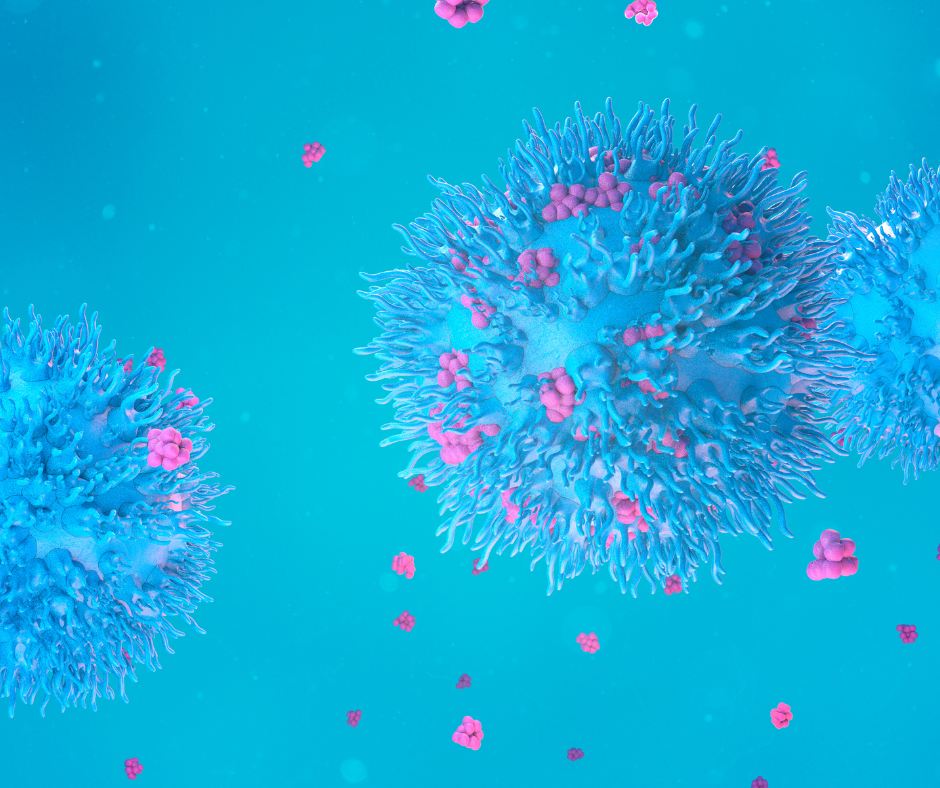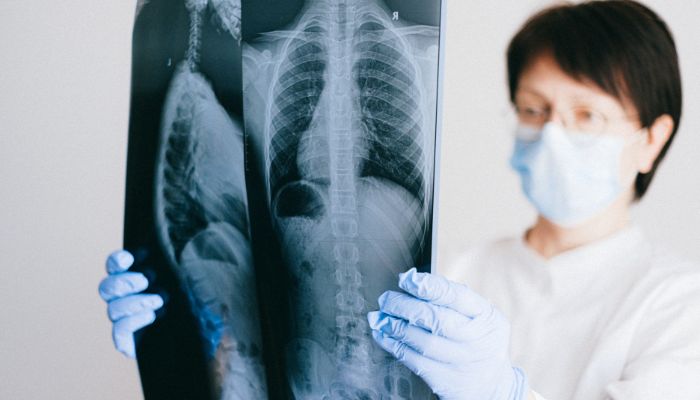|
Calcitonin and SOST levels may point to PAH and ILD, small study find by Marisa Wexler, MS | April 9, 2024 Levels of two blood proteins, calcitonin and SOST, may be markers of lung disease in people with scleroderma, a new study shows.
“This study indicates that serum calcitonin and SOST levels are promising biomarkers for [scleroderma]-related PAH [pulmonary arterial hypertension] and ILD [interstitial lung disease], respectively,” the researchers wrote, though they noted that “further research is needed to verify these results and understand the underlying mechanisms.” The study, “Protein profiling in systemic sclerosis patients with different pulmonary complications using proteomic antibody microarray,” was published in Arthritis Research & Therapy. Scleroderma, also called systemic sclerosis or SSc, is marked by abnormal scarring that usually affects skin and can also affect various other organs throughout the body. When the disorder involves the lungs, SSc can lead to complications like interstitial lung disease (ILD, marked by lung scarring) and pulmonary arterial hypertension — PAH, defined by high pressure in the blood vessels that carry blood to and through the lungs. These lung issues are leading causes of mortality in SSc, and early detection is key to facilitate optimal treatment. Scleroderma patients who feel socially isolated report more life dissatisfaction by Andrea Lobo, PhD | April 2, 2024 People with scleroderma who feel more socially isolated are more likely to report being dissatisfied with life, but this association is partially attenuated in those who show more resilience, according to a recent study.
Resilience refers to the ability to adapt to and recover from challenging life experiences, such as living with a chronic disease. These findings suggest that more adaptive coping may help protect against the negative effects of perceived social isolation, and “support the promotion of social connection and resilience to enhance life satisfaction in people with [scleroderma],” researchers wrote. The study, “Resilience partially mediates the association between perceived social isolation and life satisfaction in people with systemic sclerosis,” was published in the Journal of Scleroderma and Related Disorders. Scleroderma, or systemic sclerosis (SSc), is an autoimmune disease characterized by the accumulation of scar tissue in the skin and potentially several internal organs, including the heart, kidney, lungs, and gastrointestinal tract. Scleroderma-related changes may lead to mental health issues SSc-related physical changes and limitations, and the uncertainties about disease progression may lead to mental health issues, such as anxiety and depression, and feelings of social isolation. Therefore, assessing a patient’s well-being is an important part of disease management. In studies of other chronic disorders, resilience was found to help patients address daily life stressors and functional limitations, and improve their social functioning. However, “examination of life satisfaction in the SSc population remains limited … [and] no known study has investigated the mediating role of resilience in the relationship between perceived social isolation and life satisfaction in people with SSc,” the researchers wrote. To know more, researchers in the U.S. analyzed baseline (at the beginning of a study) data from the RENEW clinical trial (NCT04908943), in which patients were randomly assigned to a 12-week online intervention to help them manage energy and symptoms, or to no intervention. RENEW stands for Resilience-building Energy management to Enhance Well-being. The study included 163 participants, who were mainly women (93.9%), white (85.3%), married (66.7%), and with a college or higher degree (59%). Nearly half of the patients had diffuse cutaneous SSc, and 57% were within five years of their SSc diagnosis. CAR T-cell therapy for SSc designed to eliminate hyperactive B-cells by Steve Bryson, PhD | March 26, 2024 The U.S. Food and Drug Administration (FDA) has granted orphan drug designation to Cabaletta Bio’s cell therapy CABA-201 as a treatment for adults with hard-to-treat systemic sclerosis (SSc), or scleroderma.
Orphan drug designation is intended to support the accelerated development of investigational treatments for rare diseases, defined as those affecting fewer than 200,000 people in the U.S. The designation provides Cabaletta with regulatory support, financial incentives, and seven years of market exclusivity if CABA-201 is approved. “Orphan drug designation is an important recognition for investigational therapies for rare diseases, and provides us with potentially valuable benefits as we develop CABA-201 for patients with systemic sclerosis,” David J. Chang, MD, chief medical officer of Cabaletta, said in a company press release. CABA-201 received FDA fast-track designation to reduce SSc-associated organ dysfunction in January. That status is designed to speed the development of therapies that address unmet medical needs for serious conditions. The FDA in October cleared Cabaletta’s request to launch a Phase 1/2 clinical trial, RESET-SSc (NCT06328777), to evaluate CABA-201 in 12 adults, ages 18-70. Location information on the study, expected to start in June, is not yet available. The disease is taking my lips and nose like a thief in the night by Sherlene Perkins | March 25, 2024 The face is what people see first on someone, and something is happening to mine because of scleroderma. I’m not a vain person or someone who primps in front of the mirror all the time. However, some small changes are starting to appear on my face.
Scleroderma will snatch your looks like a thief in the night. I kept telling my sister and others that my face was hurting, though I struggled to describe the unusual pain. My nose hurt constantly, and my lips were starting to change in appearance. Before I got sick, I had voluptuous, thick lips and a great smile that showed off my beautiful white teeth. I tried to connect with other scleroderma patients through social media and read blogs and comments about changes in their lips and noses. As I scrolled through fellow patients’ pages, I noticed that many didn’t share photos of themselves. I contacted one woman who said that her lips were disappearing due to scleroderma and sent me before and after photos. Two others sent pictures showing the same vanishing lips. I panicked and began making phone calls to get lip augmentation. I hoped it would return the fullness of my lips. Results could help researchers develop targeted scleroderma therapies by Patricia Inácio, PhD | March 19, 2024 Lung disease severity in scleroderma (SSc) patients may be linked to levels of immune cells known as follicular T-helper cells (Tfh cells), according to a small study.
The findings “may guide the development of targeted therapies for this aspect of the disease,” the researchers wrote. Titled “The relationship between peripheral T follicular helper cells and disease severity in systemic sclerosis,” the study was published in the journal Clinical and Experimental Medicine. In scleroderma, the immune system produces self-targeting antibodies, or autoantibodies, that lead to hardening and fibrosis (thickening or scarring) of the skin. It sometimes affects internal organs as well. B-cells are responsible for producing antibodies, but evidence suggests that Tfh also may play a role in scleroderma. Tfh cells are a specialized subset of T-cells that support the antibody production of B-cells and have been implicated in autoimmune diseases such as multiple sclerosis and myasthenia gravis. However, a link between t-helper cells and disease severity in SSc has not been established. Inflammatory arthritis — a condition marked by joint inflammation that causes swelling, pain, and damage — affects about one-third of people with scleroderma, also known as systemic sclerosis (SSc), and is associated with worse health-related quality of life, or HRQoL for short, according to a new study from Australia.
“Our results reveal the significant impact that [inflammatory arthritis] has on patients, with the presence of [such inflammation] being negatively associated with employment, physical function, and HRQoL,” the researchers wrote. Given that such arthritis is treatable, “further research is needed to understand the extent of joint involvement in SSc and optimal strategies for its management,” the researchers wrote. Their study, “Inflammatory Arthritis in Systemic Sclerosis: Its Epidemiology, Associations, and Morbidity,” was published in the journal Arthritis Care & Research. |
AuthorScleroderma Queensland Support Group Archives
July 2024
Categories
All
|
Scleroderma Association of Queensland
©Scleroderma Association of Queensland. All rights reserved. Website by Grey and Grey.






